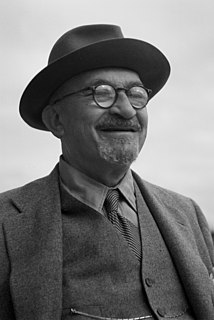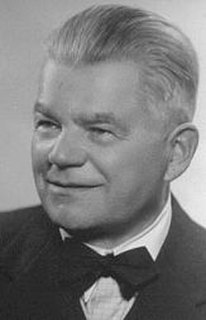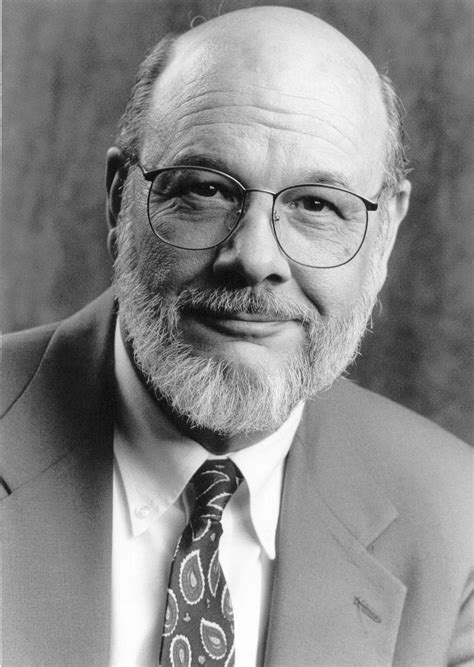Top 319 Welcomed Quotes & Sayings - Page 6
Explore popular Welcomed quotes.
Last updated on April 21, 2025.
And when the sun rises we are afraid it might not remain when the sun sets we are afraid it might not rise in the morning when our stomachs are full we are afraid of indigestion when our stomachs are empty we are afraid we may never eat again when we are loved we are afraid love will vanish when we are alone we are afraid love will never return and when we speak we are afraid our words will not be heard nor welcomed but when we are silent we are still afraid So it is better to speak remembering we were never meant to survive
When I had my sheep, I was happy, and I made those around me happy. People saw me coming and welcomed me, he thought. But now I'm sad and alone. I'm going to become bitter and distrustful of people because one person betrayed me. I'm going to hate those who have found their treasure because I never found mine. And I'm going to hold on to what little I have, because I'm too insignificant to conquer the world.
He received me not only cordially, but he was also full of confidence with respect to the war. His first words, after he had welcomed me, were as follows: 'Well, Dr. Weismann, we have as good as beaten them already.' I...thanked him for his constant support for the Zionist course. 'You were standing at the cradle of this enterprise.' I said to him, 'and hopefully you will live to see that we have succeeded.' Adding that after the war we would build up a state of three to four million Jews in Palestine, whereupon he replied: 'Yes, go ahead, I am full in agreement with this idea.'
When...did it become irrational to dislike religion, any religion, even to dislike it vehemently? When did reason get redescribed as unreason? When were the fairy stories of the superstitious placed above criticism, beyond satire? A religion was not a race. It was an idea, and ideas stood (or fell) because they were strong enough (or too weak) to withstand criticism, not because they were shielded from it. Strong ideas welcomed dissent.
Our two nations both faced great challenges when they were founded, and our two nations have both relied on the same principles to help us succeed. We've built strong democracies to protect the freedoms given to us by an Almighty God. We've welcomed immigrants, who have helped us thrive. We've built prosperous economies by rewarding innovation and risk-taking and trade. And we've built an enduring alliance to confront terrorists and tyrants.
Mr Speaker, Mr Vice President, members of Congress, distinguished guests, and fellow Americans, last month I went to Andrews Air Force Base and welcomed home some of our last troops to serve in Iraq. Together, we offered a final, proud salute to the colors under which more than a million of our fellow citizens fought, and several thousand gave their lives. We gather tonight knowing that this generation of heroes has made the United States safer and more respected around the world.
It is worthwhile to liveand fight courageouslyfor sacred ideals.O blow ye evil windsinto my body's firemy soul you'll never unravel.Even though disappointed a thousand timesor fallen in the fightand everything would worthless seem,I have lived amidst eternity -Be grateful, my soul -My life was worth living.He who was pressed from all sidesbut remained victorious in spiritis welcomed into the choir of heroes.He who overcame the fettersgiving wings to his mindis entering into the golden age ofthe victorious.
Let me name three of the people who influenced me, although it's definitely not a complete list. Ayesha Jalal, the formidable Pakistani-American historian, has rigorously re-evaluated Jinnah's political strategies leading up to Partition. Akbar Ahmed, a former diplomat and now a distinguished scholar, has documented Jinnah's life as a man who welcomed, worked with, and even married people of other faiths. And then there is Ardeshir Cowasjee, the great Parsi newspaper columnist, who in his mid-80s is a kind of living history of all of Pakistan, old enough to have known Jinnah himself.
These days, it feels to me like you make a devil's pact when you walk into this country. You hand over your passport at the check-in, you get stamped, you want to make a little money, get yourself started... but you mean to go back! Who would want to stay? Cold, wet, miserable; terrible food, dreadful newspapers - who would want to stay? In a place where you are never welcomed, only tolerated. Just tolerated. Like you are an animal finally house-trained.
I believe faith is a human universal. We are endowed at birth with nascent capacities for faith. How these capacities are activated and grow depends to a large extent on how we are welcomed into the world and what kinds of environments we grow in. Faith is interactive and social; it requires community, language, ritual and nurture. Faith is also shaped by initiatives from beyond us and other people, initiatives of spirit or grace. How these latter initiatives are recognized and imaged, or unperceived and ignored, powerfully affects the shape of faith in our lives.
When evening comes, I return home and go into my study. On the threshold I strip off my muddy, sweaty clothes of everyday, and put on the robes of court and palace, and in this graver dress I enter the antique courts of the ancients and am welcomed by them, and there I taste the food that alone is mine, and for which I was born. And there I make bold to speak to them and ask the motives of their actions, and they, in their humanity, reply to me. And for the space of four hours I forget the world, remember no vexation, fear poverty no more, tremble no more at death; I pass indeed into their world.
A new generation of Christians is being called to help build a world in which God's gift of life is welcomed, respected and cherished-not rejected, feared as a threat and destroyed. A new age in which love is not greedy or self-seeking, but pure, faithful and genuinely free, open to others, respectful of their dignity, seeking their good, radiating joy and beauty. A new age in which hope liberates us from the shallowness, apathy and self-absorption that deaden our souls and poison our relationships.
Mohammed knew that most people are terribly cowardly and stupid. That is why he promised two beautiful women to every courageous warrior who dies in battle. This is the kind of language a soldier understands. When he believes that he will be welcomed in this manner in the afterlife, he will be willing to give his life, he will be enthusiastic about going to battle and not fear death. You may call this primitive and you may laugh about it, but it is based on deeper wisdom. A religion must speak a man's language.
When I learned the news about Harmon today, I felt like I lost a family member. He has treated me like one of his own. It's hard to put into words what Harmon has meant to me. He first welcomed me into the Twins family as an 18-year-old kid and has continued to influence my life in many ways. He is someone I will never forget and will always treasure the time we spent together. Harmon will be missed but never forgotten.
The Great Famine is a period of our history that we need to know in great detail in order to understand its continuing impact on us as a people. Its causes were complex. We can't apportion blame simplistically but rather [must] understand that blame has to be shared in different areas and levels of society. It was the very poorest of the poor, the small tenants and cottiers, who really suffered. Others were less affected. But most of all I welcomed the commemoration because it was a moment to look into our past and realize the courage and resilience of those who survived.
Any man who stands for progress has to criticize, disbelieve and challenge every item of the old faith. Item by item he has to reason out every nook and corner of the prevailing faith. If after considerable reasoning one is led to believe in any theory or philosophy, his faith is welcomed. His reasoning can be mistaken, wrong, misled and sometimes fallacious. But he is liable to correction because reason is the guiding star of his life. But mere faith and blind faith is dangerous: it dulls the brain, and makes a man reactionary.
Amid the worry of a self- condemnatory soliloquy, his demeanour seemed grave, perhaps cold, both to me and his mother. And yet there was no bad feeling, no malice, no rancour, no littleness in his countenance, beautiful with a man's best beauty, even in its depression. When I placed his chair at the table, which I hastened to do, anticipating the servant, and when I handed him his tea, which I did with trembling care, he said: "Thank you, Lucy," in as kindly a tone of his full pleasant voice as ever my ear welcomed.
Feelings, whether of compassion or irritation, should be welcomed, recognized, and treated on an absolutely equal basis; because both are ourselves. The tangerine I am eating is me. The mustard greens I am planting are me. I plant with all my heart and mind. I clean this teapot with the kind of attention I would have were I giving the baby Buddha or Jesus a bath. Nothing should be treated more carefully than anything else. In mindfulness, compassion, irritation, mustard green plant, and teapot are all sacred.
Al-Ghazali is the most important philosophical theologian of classical Islam, and Moderation in Belief is among his most important works. It sets out al-Ghazali's Ash?arite theology with unusual clarity and provides important background for such well-known works as his autobiographical Deliverance from Error and his attack on Avicenna in The Incoherence of the Philosophers. This first English-language translation, with notes that bring out the argumentation and background of the work, is thus very much to be welcomed.


















